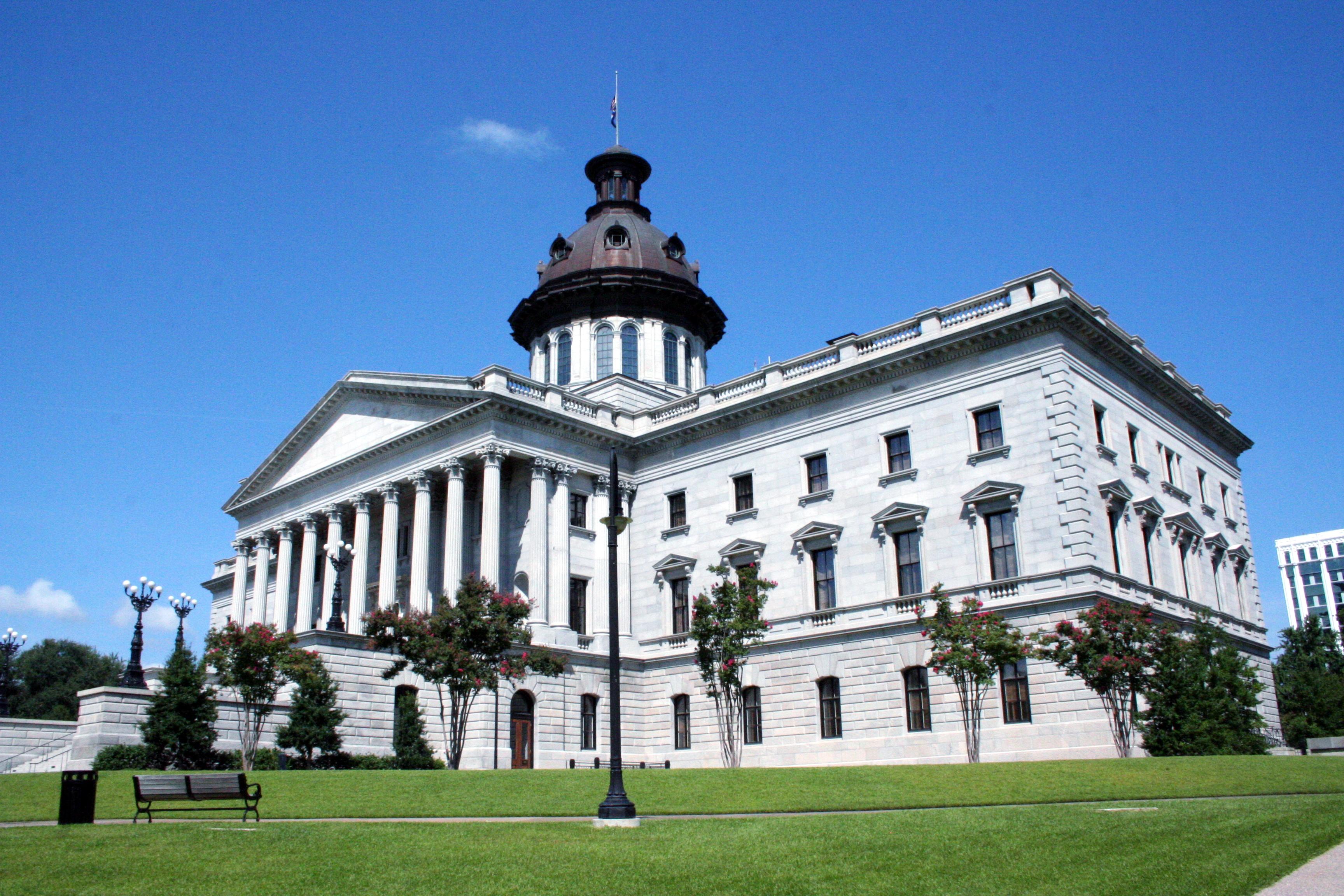South Carolina Lawmakers Reach Deal To Cut Income Tax
Americans for Tax Reform’s Patrick Gleason writes in Forbes about South Carolina’s income tax cuts, quoting PPI senior fellow Dr. Oran Smith.
Governors and lawmakers in 14 states enacted income tax relief last year and eight states have already approved income tax cuts so far this year. South Carolina is now poised to be the next state whose residents receive income tax relief. The income tax cut expected to hit Governor Henry McMaster’s (R-S.C.) desk this month, aside from allowing people to keep more of their paychecks, will help South Carolina avoid falling further behind neighboring states where numerous income tax cuts have been approved over the past decade and as recently as last month.
Next door to South Carolina, thanks to a bill recently signed by Governor Brian Kemp (R-Ga.), Georgia residents will soon see their state income tax rate drop from 5.75% to a flat 4.99%. Meanwhile across South Carolina’s other border, North Carolina’s flat income tax fell from 5.25% to 4.99% on the first day of 2022. The Tar Heel State’s income tax rate is scheduled to drop again to 3.99% in 2026.
Though North Carolina residents recently received another tax cut, lawmakers in Raleigh recognize there is still constituent demand for further income tax relief. Polling released by the Center for American Ideas and the GOPAC Education Fund on June 8 found widespread support for a proposal to further reduce North Carolina’s income tax rate to 2.5% by 2030. The new polling shows support for moving to a 2.5% income tax rate ranging from 74% to 77% in the four competitive state legislative districts that were surveyed. By passing legislation to move to a 2.5% flat tax, North Carolina legislators would match the new income tax rate that Arizona is heading to thanks to tax reform enacted by Governor Doug Ducey (R), which was shepherded through a legislature with slim majorities by Senator J.D. Mesnard (R) and House Majority Leader Ben Toma (R).
Many members of the South Carolina Legislature recognize if they don’t get income tax relief enacted this year and improve upon it in subsequent sessions, they’re likely to see the Palmetto State’s tax disadvantage relative to neighboring states continue to grow. As in North Carolina, recent polling indicates there is a great deal of support for state income tax relief in South Carolina. A poll released by the South Carolina Policy Council on June 4 found 77% of respondents believe it is important to reduce the state income tax, with 54% saying state income tax rate reduction is very important.
The good news for South Carolinians who want to see the state income tax rate cut, thanks to the efforts of legislators in Columbia, is that South Carolina is now on the verge of being the next place where income tax relief is enacted in 2022. After years of being surrounded by states cutting income taxes while rates in South Carolina remained unchanged, South Carolinians are on the cusp of receiving needed income tax relief.
“We have been calling for cutting the South’s highest marginal individual income tax rate since our founding,” said Dr. Oran Smith of Palmetto Promise Institute. “We kicked it up a notch this year by releasing a video during the Governor’s State of the State as he called for the cut. We are hopeful that before the month is out that ugly ‘7’ on the Tax Foundation map goes away for good!”
With a top rate of 7%, South Carolina is currently home to the highest income tax rate in the entire southeastern United States. For those working to attract more jobs, investment, and people to South Carolina, that’s a distinction that needs to cease. In an effort to change that, the South Carolina House and Senate both passed income tax relief bills with unanimous majorities this spring. Conference committee members have since been working out the differences between the two proposals.
There are meaningful differences between the House and Senate income tax bills in South Carolina that need to be worked out. Many believe there are unique aspects to proposals from each chamber that, if combined, would lead to the most positive outcome for taxpayers.
The House-passed income tax relief bill, which takes South Carolina’s top income tax rate from 7% to 6% over five years, doesn’t cut the top rate as much as the Senate-passed bill, which brings that rate down to 5.7% immediately. While the Senate passed a larger top rate cut, the House simplified the income tax code in a way the Senate bill does not. The House-passed income tax cut moves the state from four to two income tax brackets, collapsing the bottom three brackets into a single bracket taxed at 3%.
Many hoped the larger top rate cut approved by the Senate would be combined with the consolidation of lower brackets in the House-passed tax plan to produce a final product that adopts the optimal parts from both plans. Instead, it was reported on Friday, June 10 that the conference committee is going with the House-passed rate reduction and is coupling that with a $1 billion rebate to taxpayers. Under this compromise, which is expected to be voted on by South Carolina lawmakers in the coming week, the top income tax rate will drop immediately to 6.5% and then be phased down to 6% over the next five years. The bottom two brackets will be consolidated into a 3% bracket.
“We have made substantial investments in South Carolina,” said House Speaker Murrell Smith (R). “A billion in reserves, $1 billion in roads and $2 billion in tax relief.”
Enactment of an income tax cut this year will provide needed relief to South Carolina families, many of whom are struggling amid the highest inflation in four decades. In addition to allowing households to keep more of their hard-earned income, individual income tax relief bills also typically benefit small businesses, since most file under the personal income tax system. Yet South Carolina already assesses a preferential flat 3% tax on business income taxed under the individual income tax system, making the pending tax relief package of no benefit to small business owners.
According to IRS data, more than 514,000 small business owners file under the individual income tax system in South Carolina. Cutting the top personal income tax rate, which gets attacked by opponents as a giveaway to the rich, in practice expands the capacity of small businesses in most states to hire new workers and give existing employees raises. Since South Carolina already taxes small business income at a preferential rate, lawmakers would need to get the personal income tax rate below 3% in order to provide relief to small business owners.
The tax cut nearing Governor McMaster’s desk will cause South Carolina’s top income tax rate to fall below 7% for the first time since that rate’s adoption in 1959. That said, South Carolina will still have the highest income tax rate in the region even after Governor McMaster signs the income tax cut expected to pass on June 15. Even if the Senate’s larger top rate cut had been included in the final package, South Carolina would still have had the highest income tax rate in the southeast. That is why key legislators have already made clear this is just a first step and that tax reform needs to be on the agenda in future sessions if South Carolina’s tax code is to be made more competitive.
The income tax relief deal reached between the South Carolina House and Senate caps off a remarkable legislative session in the Palmetto State. Between approval of long sought income tax relief and passage of landmark legislation to create education scholarship accounts that will provide thousands of children access to more schools, South Carolina lawmakers are close to wrapping up business on what is poised to be a consequential legislative session that will provide much fodder for discussion on the 2022 campaign trail and beyond.






